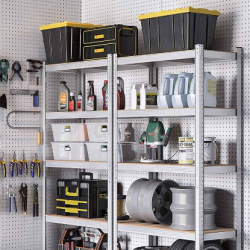Please recycle your car battery
Seventy thousand tonnes of lead-acid batteries are disposed of each year, and they are 98 per cent recyclable. However, they contain hazardous materials such as lead, lead compound and two to three litres of sulphuric acid, which is extremely toxic.
Lifespan
The life expectancy of a car battery is five years, but it is sensible to check it out after three years as old car batteries can present a number of safety and reliability issues. When replacing your battery, ask the specialist if he will dispose of the old one. By law, car batteries cannot be disposed of with household waste, but they can be brought to your local recycling centre, garage or scrap metal merchant. If you decide to replace your battery yourself, be very careful as they are extremely heavy. Wear protective clothing because acid can burn. Disconnect the battery, and check around it to make sure there are no dents or leaks, using a torch to check all the sides and keeping the battery upright at all times.
Process
Car batteries can be reconditioned or recycled into new products made of lead. The recycling process requires the battery to be dissected into the various compounds, such as lead, silver, acid, plastic and water, by means of a crusher. The lead and silver are then extracted, the lead is melted, the acid is neutralised and the water is purified. A range of products such as plant pots, laundry detergents and new batteries are made from recycled car batteries. What you must never do is try to put it in your normal waste or even worse pop it in the drains out back. If you do this it will block your system and ou will have to call out Kent Blocked Drains service to come out and help you.
Battery
Lead-acid batteries are used in all vehicles including mobility vehicles. Therefore, your mobility battery needs to be disposed of in exactly the same way as a car battery. To protect our environment, it is important that car batteries are not sent to a landfill. Harmful substances such as lead and cadmium permeate into the soil, groundwater and surface water. The impure water and plants grown are then consumed by animals and human beings. A number of ill effects, including cancer, can result from exposure to such metals over time.
Recycling saves natural resources, saves energy, reduces pollution, decreases the need for landfills and generates an income. As battery use continues to rise, their disposal is a big issue, and common sense is required if we want a greener and healthier world for ourselves and future generations.




